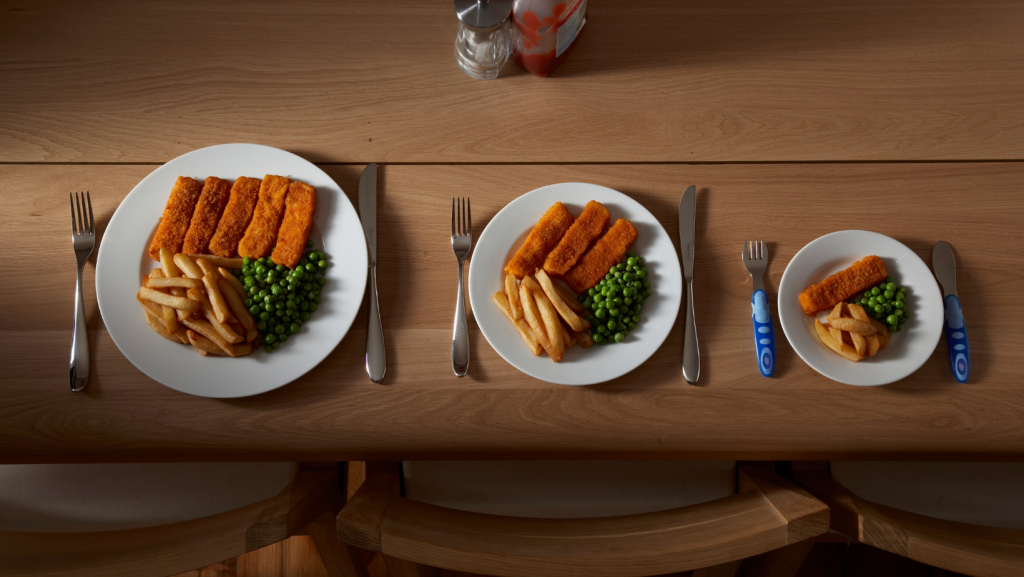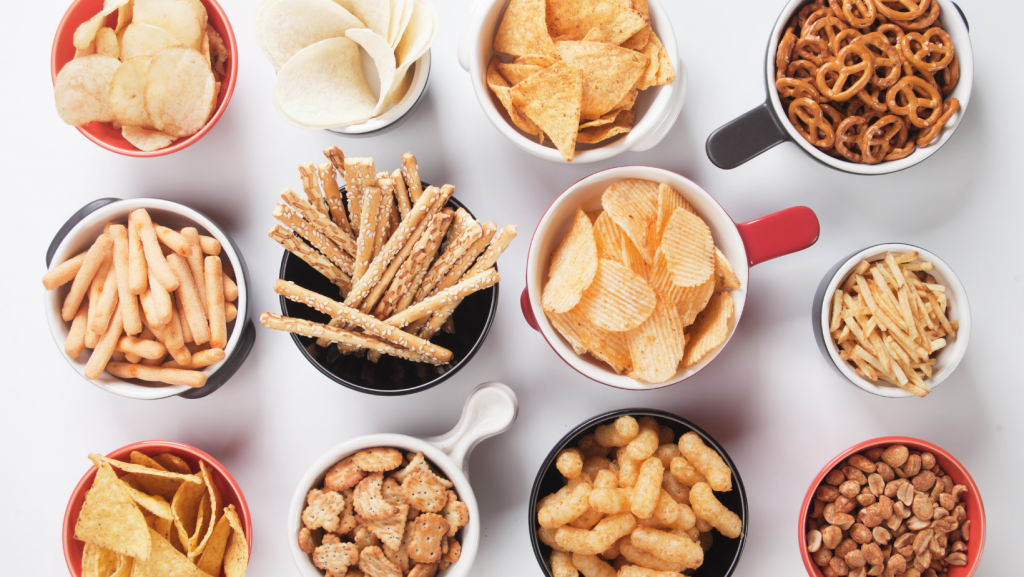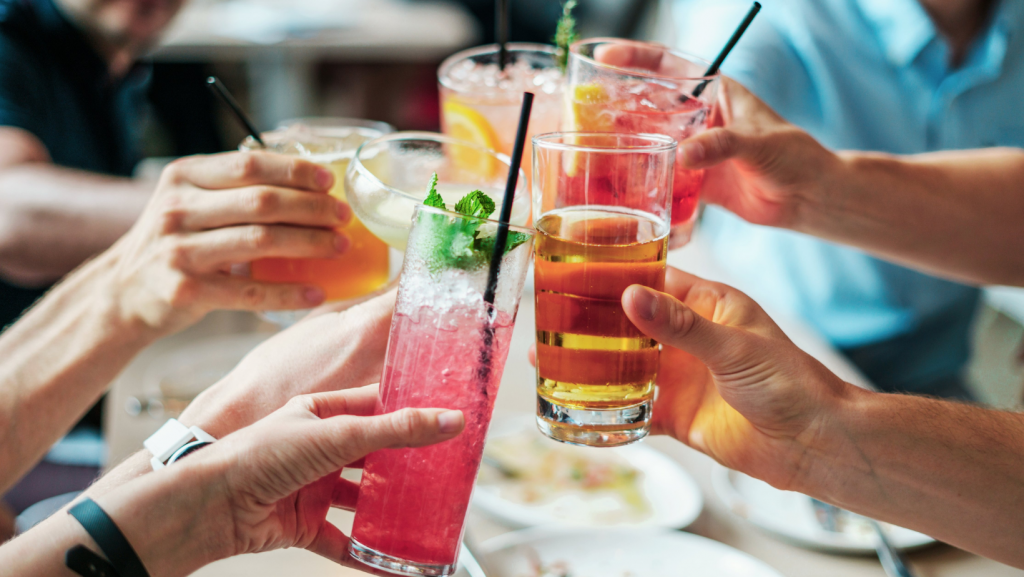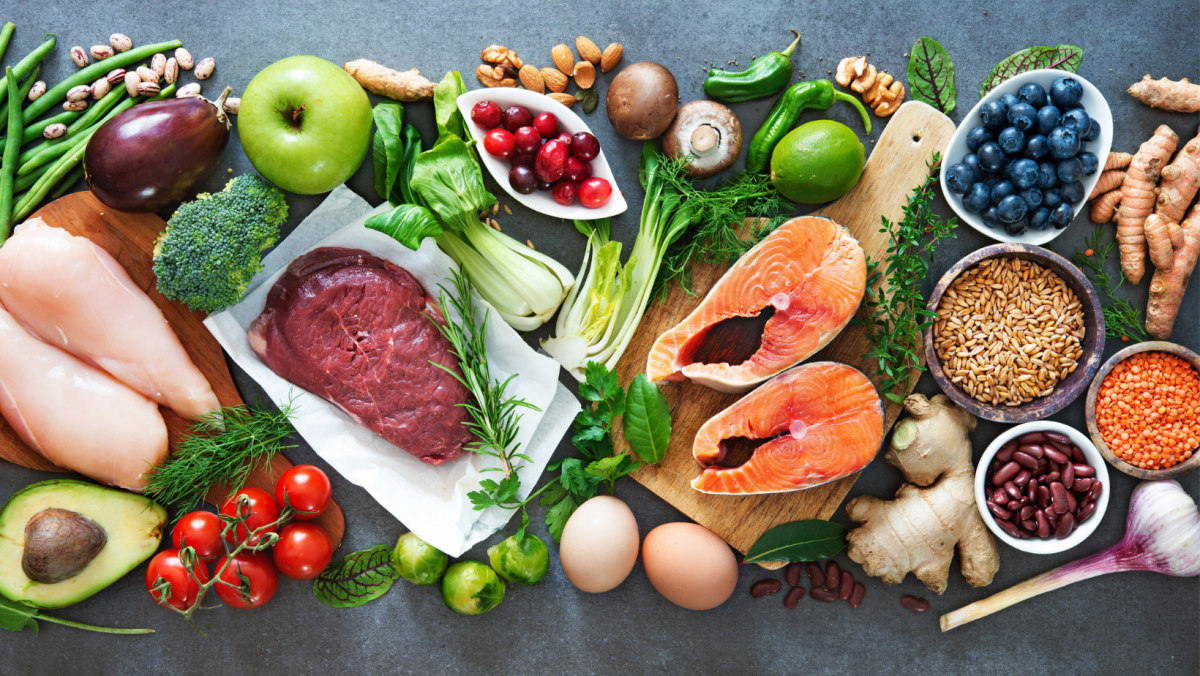PORTION SIZES
SNACKING
LIQUID CALORIES
When dieting people often focus too much time on the small things that don’t matter and don’t move the needle. They also focus on a particular type of diet and seek confirmation that it’s the ‘best diet’ compared to others which to be honest the reasons are purely individual because it’s always the best option that works for you and your lifestyle.
Let’s cut to the chase on what we need to achieve to lose weight, you need to make sure you are in a negative energy balance otherwise known as THE CALORIE DEFICIT. You need to expend more calories than you ingest through food & drink.
There are lots of diets out there that dress this up in a fancy way and in most cases hide the calorie deficit from the consumer (to make money from you), making you think that it’s that particular diet that is superior which absolutely is not true.
A successful weight loss diet works because that person is in a calorie deficit – no matter what method they choose.
It’s not down to a points system e.g. slimming clubs or a window of eating e.g. intermittent fasting or similar. It’s purely down to the volume of calories. This is often hidden from you to make it sound sexier.
Today I’m going to share with you three very simple things that I feel are the main reasons why people fail and these are the first things I would look at in someone’s diet in order to create change. All of these tips could be used without necessarily having to track every single calorie, that being said I always recommend tracking calories at least initially because it not only gives you data and information about what works for you but it also educates you on food volume and this ties in very well with the first reason below…
1. PORTION SIZES

The easiest thing to change is simply the volume of food that you consume in your meals. The majority of people give no thought to portion sizes and rarely weigh out or even eyeball how much they are going to have. The usual things that I see impacting people the most are portion sizes of cereal, pasta, rice and similar. These things are incredibly easy to simply throw in the bowl or the pan and consume without much thought.
In my experience most people over consume on these things simply because they don’t pay any attention to how much they make e.g. pouring them freely into the bowl or pan before cooking and thinking ‘Yeah, that’s about right’. They are also quite morish, I mean who doesn’t enjoy these things?
But if we take cereal for a second and more specifically let’s take Special K, typically viewed as a ‘healthy’ cereal (whatever that means). Kellogg’s recommend a portion size of 30g which is about the size of the palm of your hand which equates to 113kcals. Think back to the last bowl or cereal you had and how many handfuls you had? This serving recommendation barely covers one third of the bowl. So let’s assume you have three times this and cover the bowl. You have had 339kcals before adding milk. If we add 200ml of semi skimmed in there you can add another 100kcals to that so we are at 439kcals and this is assuming you haven’t added anything else to it. We the consider your morning drink and the calories involved and even the cheeky slice of toast with some butter at the side. We are looking in excess of 600kcals straight away.
If we consider this theory for your others meals you can see how not managing portion sizes can dramatically impact calorie intake. Most people underestimate how big their portion sizes are in their other meals too.
By simply measuring out your portion size and being consistent you can reduce your calorie intake considerably just by doing this. Most people could probably reduce each meal by 200kcals by simply being aware of portion sizes. Over three meals this would equate to 600kcals per day! This can be a huge factor as to why you are not dropping weight.
The truth is we just aren’t that good at eye-balling portion sizes and my tip here is to simply take 10 seconds to weigh out your portion size using some digital scales you can purchase for less than £10. You can make it easy by putting the bowl on first for your cereal or even the pan for your rice or pasta. 10 Seconds could save you a lot of calories and over a week and beyond this will have a huge impact on your overall calorie intake and therefore weight loss. It doesn’t have to be a lengthy process it’s very simply to do and probably one of the quickest and easiest things you can do to have the biggest possible impact.
Please note, this isn’t something you’ll need to do forever, I’m not saying you should weigh your food out for the rest of your life, but during at least the initial phase of weight loss this can have incredible impact on your results and your education to support your future management of your diet.
2. SNACKING

Snacking is a huge contributor to consuming too many calories in order to lose weight. Typically people snack on hedonic foods e.g. ice cream, crisps, chocolate etc. These are foods that are moreish and without some attention you can easily consume 500-1000kcals in a matter of minutes and often this can be done without even thinking about it.
We are led by our habits and we often have habits like eating in front of the TV or immediately after our evening meal. Our brain has been wired to do this and so the triggers are there without us even realising it and before you know it the Ben & Jerry’s tub is empty!
It isn’t that snacking it bad, it is just that we often do it without realising the don’t realise the impact of the calories, or we do realise it we just don’t know how to stop it. This stems from taking the time and putting the effort into changing our habits. It’s very difficult to simply stop doing something e.g. stop eating after your evening meal.
Try it, trust me, it’ll be tough and you won’t last very long.
The key here is to start another habit that coincides with the same triggers. E.g. change the thing that you eat for something much lower in calories e.g. a protein yogurt, a low kcal jelly or a piece of fruit.
Limiting yourself to one item or a specific amount will also help with this. Another tip would be simply to get rid of all of the things that might lead you to snack. Simply not buying the hedonic foods or not buying as many of them can be a really easy way to combat it. You are much less likely to move away from your favourite TV series and go to the shop because you haven’t got it in your cupboards.
You can purchase smaller chocolate based snacks that are 100-150kcals, giving yourself total freedom to still enjoy chocolate but adding a control of the volume is a great way of amending the already successful habit into a habit that is more congruent with your goals. You could even label the packet with a huge note saying ‘ONLY ONE’. This could be a really good trigger to remind you of what you are trying to achieve, because of course we can forget or temptation can take over.
Reducing snacking or managing it better is probably the toughest one out of the three to amend because as I mentioned above, so much of the process is automated so you need to be really clever with how you make the small but definite changes to how you snack.
3. LIQUID CALRORIES (INCLUDING ALCOHOL)

Before I get to talking about booze, let’s talk about how important it is to understand that liquids include calories. One of the big mistakes people make when dieting and trying to get in a deficit is that they forget about what they drink and what they cook with.
Let’s take drinks first, tea & coffee themselves aren’t going to impact your calories, however the milk you put in them and possibly the sugar will do. Many people have multiple cups per day and if you are purchasing lattes or similar you are looking at least at 150kcals for a drink which in some cases will be 10% of the daily requirement for someone who is aiming at a deficit (a small female). Even if you are having several cups of coffee or tea with milk, it will tot up and could be the difference between a plateau and progress.
We should also consider sauces and cooking oils, many people cook with oils and these can contain a lot of calories, especially if freely used. This would also include butter when cooking too. Another one to consider would be sauces that you either cook in or add on the side afterwards, all of which contain calories. Again these things aren’t inherently bad but if you aren’t considering them when calorie counting it could be what is confusing you as to why the scales aren’t budging.
Lastly let’s get to the alcohol element, we all like a drink and is there anything wrong with that again? No, of course not.
However we must consider how detrimental not acknowledging and getting a handle on it can be. Let’s take a large glass of wine for example which sits around 250kcals. Polish off 4 of these on a Friday and you’ve successfully ingested 1000kcals along with the snacks that usually come with it. 1000kcals could be the deficit you have worked so hard to create Monday-Thursday.
One can or pint of beer can sit around 200kcals and so 5 of those on a Friday can get you to the same amount (plus the snacks too). Do that again on a Saturday along with the odd one or two through the week and you’ve probably found yourself drinking a day’s worth of calories over the week.
I’m not saying again that you shouldn’t drink but I’m saying you should be very aware that it can be a huge reason why people don’t make progress. They simply think about their food and stare at the scales in dismay when they don’t go down.
Now you could opt for lower calorie alcoholic options e.g. gin and slimline tonic or vodka and diet coke. That way you still get the benefit of enjoying alcohol but you are intaking much fewer calories which is a win-win situation for someone wanting to lose weight without losing their life and changing their habits too much.
SUMMARY
I’m not writing this blog to tell you that you can’t have any fun and dieting must be boring, but I am here to give you the big reasons as to why so many people fail.
I promise you that if you get a handle on these three things, you will be successful with your weight loss.
You will also see substantial improvements in your sleep, energy, mood and motivation along with it.
Every single client that improves their diet always tells me that all of those things improve. It’s not just about weight loss when we look to become ‘healthier’ with our diet and our choices. It’s about improving our life overall. You could simply implement these small changes without actually counting calories and I’d imagine you’d see huge improvement just with that.
The key thing is it requires attention, it requires you to be prepared and be willing to make small changes for the greater good because what you got where you are right now as you read this blog, is not what will get you to where you want to be.
Following these steps is a start. If you would like any further help or support, I highly recommend you reach out to me, I specialise in coaching people over the age of 28 who have hit a wall, let themselves go and need to make big change in their lives but don’t quite know where to start.
If that’s you and you’d like to enquire about working with me privately, simply click the link below and fill in the short enquiry form and I’ll be in touch to arrange a chat about how we can help you achieve results you never thought you could.

